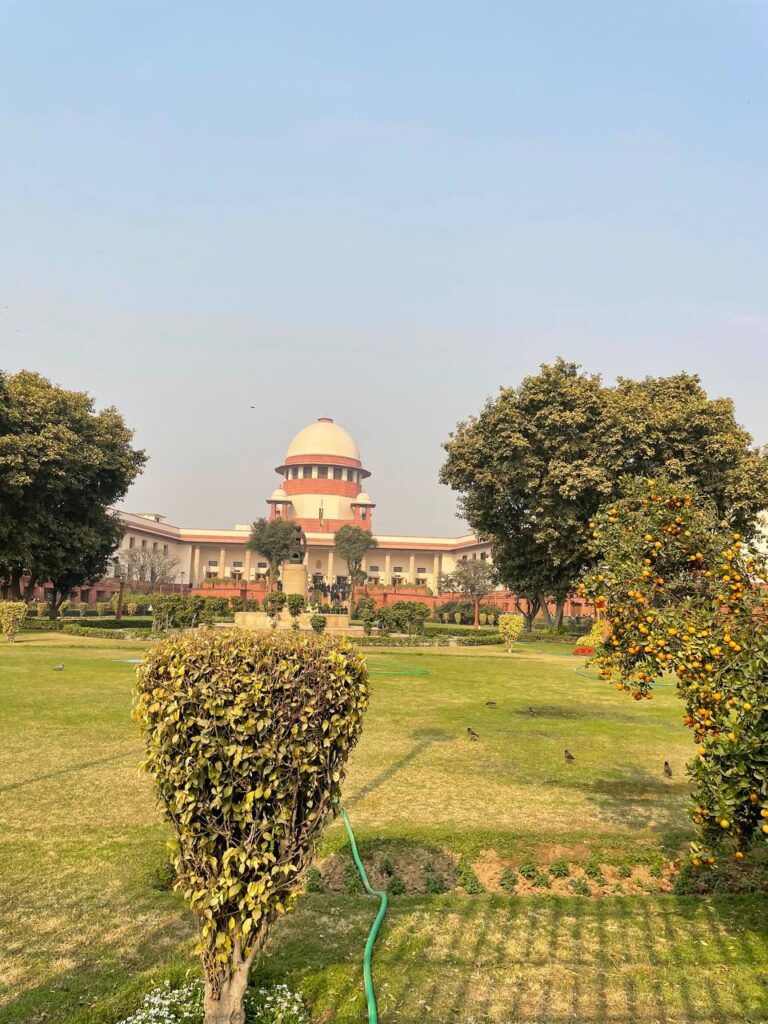New Delhi, March 29.
Jails are overcrowded and the living conditions appalling, the Supreme Court said on Wednesday and urged lower courts to release undertrials on bail before they complete half their sentences if they cannot conclude trials on time.
The court warned the subordinate courts against the “dangers of unjust imprisonment” and urged them to grant bail wherever they cannot complete trial quickly.
“… it would be important to reflect that laws which impose stringent conditions for grant of bail, may be necessary in public interest; yet, if trials are not concluded in time, the injustice wrecked on the individual is immeasurable,” the court said.
National Crime Records Bureau figures showed that as on 31st December 2021, over 5,54,034 prisoners were lodged in jails against the total capacity of 4,25,069 lakhs, the court noted.
Of these 122,852 were convicts; the rest 4,27,165 were undertrials, it said citing the Union Home Ministry’s response to Parliament.
The danger of unjust imprisonment, is that inmates are at risk of “prisonisation”, a radical transformation whereby the prisoner “loses his identity”.
“He (the prisoner) is known by a number. He loses personal possessions. He has no personal relationships.
“Psychological problems result from loss of freedom, status, possessions, dignity any autonomy of personal life. The inmate culture of prison turns out to be dreadful. The prisoner becomes hostile by ordinary standards. Self-perception changes.”
There is a further danger of the prisoner turning to crime, “as crime not only turns admirable, but the more professional the crime, more honour is paid to the criminal”, it said.
Incarceration has further deleterious effects where the accused belongs to the weakest economic strata: immediate loss of livelihood, and in several cases, scattering of families as well as loss of family bonds and alienation from society, the court said.
The courts, therefore, have to be sensitive to these aspects (because in the event of an acquittal, the loss to the accused is irreparable), and ensure that trials, especially in cases (where special laws enact stringent provisions) are taken up and concluded speedily.
A bench led by Justice Ravindra Bhatt said this while releasing a 23 year old who had been incarcerated in a NDPS case.
A procedure which does not ensure a reasonably quick trial cannot be regarded as “reasonable, fair or just” and it would fall foul of Article 21, it said.
There can, therefore, be no doubt that a reasonably expeditious trial, is an integral and essential part of the fundamental right to life and liberty enshrined in Article 21, the court said.
In this case the undertrial’s bail was rejected by the High court and he has suffered incarceration for over 7 years and the criminal trial has hardly reached the half-way mark, the top court noted.
Quoting an earlier ruling, it said that a court cannot deny bail and delay trial of cases. This is clearly unfair and unreasonable and contrary to the spirit of Section 36(1) of the Act, Section 309 of the CrPC and Articles 14, 19 and 21 of the Constitution, it said.
Right to speedy trial may even require in some cases quashing of a criminal proceeding altogether, it said. Release on bail, which can be taken to be embedded in the right of speedy trial, may, in some cases be the demand of Article 21, the bench said.
In this case, the bench said that it was not accepting a plea for quashing proceedings and setting free the accused whose trials have been delayed beyond reasonable time.
“… we have felt that deprivation of the personal liberty without ensuring speedy trial would also not be in consonance with the right guaranteed by Article 21.
“Of course, some amount of deprivation of personal liberty cannot be avoided in such cases; but if the period of deprivation pending trial becomes unduly long, the fairness assured by Article 21 would receive a jolt.
“It is because of this that we have felt that after the accused persons have suffered imprisonment which is half of the maximum punishment provided for the offence, any further deprivation of personal liberty would be violative of the fundamental right visualised by Article 21, which has to be telescoped with the right guaranteed by Article 14 which also promises justness, fairness and reasonableness in procedural matters.”

